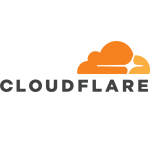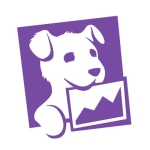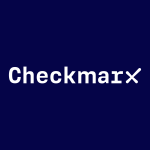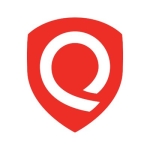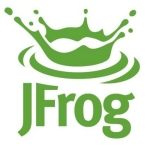What is our primary use case?
In terms of use cases, we had a single client. This client belonged to the insurance sector here in India, specifically a large insurance chain. We discovered that they had migrated to a cloud environment and had some security controls in place. However, they lacked expertise in understanding the threats associated with the cloud. From a resource and organizational perspective, they didn't possess the necessary skill set to implement a comprehensive governance framework. This client operates within the insurance industry, regulated by the Insurance Regulatory and Development Authority in India, which has revised some pipelines for the current financial year. The IRDA also serves as a regulatory authority for Indian banks. As a result, the client needed to strengthen their controls, particularly those with higher significance.
Their objective was to implement a few security controls to successfully pass an upcoming audit. We recommended that they integrate Prisma into their infrastructure. This would allow them to generate reports promptly whenever required and help fine-tune existing policies or guide the infrastructure development team in implementing new ones. Prisma would scan the entire infrastructure and provide the best recommendations. It was a challenging use case in terms of implementation, as only a few clients were familiar with Prisma's capabilities. Prisma is a cloud service that enables the hosting of applications and infrastructure.
We wanted to address vulnerabilities that we identified from a logging and monitoring perspective, which is why we implemented Prisma Cloud.
How has it helped my organization?
If we discuss a multi-cloud environment or a multi-fleet architecture or implement it as a fleet architecture, Prisma Cloud offers comprehensive functionality. It enables us to obtain complete reports or scanning reports from the tool on an enterprise scale. However, this process takes time. Although it is completed within seconds, if we have a larger infrastructure with multiple running instances, the tool will require more time. Nevertheless, the resulting report will be accurate and provide a comprehensive perspective.
In terms of a multi-cloud environment, our observations indicate that if we implement and configure Prisma Cloud with Azure and AWS, the tool performs well. On the other hand, when performing checks on AWS and GCP, the tool exhibits better performance on AWS. It does not meet the same standards on the GCP side, but it remains accurate. Azure is compatible with AWS and shows promising results. Additionally, we are currently conducting tests on the Azure environment.
Regarding the entire infrastructure, whether it follows an SAP model, PaaS model, or a previous model based on infrastructure, our testing has yielded positive results, particularly when using the SaaS model. AWS achieves 100 percent accuracy. From larger clients to smaller ones, even within internal GCP corridors where Prisma is connected, they are effectively protected.
Prisma's security automation capabilities are straightforward. We need to ensure that we have a clear understanding of our intended automation actions before proceeding. I was engaged with a company in the oil and gas sector that utilizes AWS infrastructure. They adopted Prisma Cloud and we implemented some automation. During testing, the alerts were satisfactory. However, in subsequent attempts, vulnerabilities were detected after the automation was executed. I wouldn't describe it as difficult, but rather as tricky.
Prisma Cloud assists us in adopting a proactive approach to cloud security. It provides us with a comprehensive view of areas that require fine-tuning. This perspective encompasses not only governance and threats but also the overall security landscape.
Prisma Cloud helped us reduce manual effort by up to eighty percent. It fine-tuned policies and implemented security controls for the cloud, including threat and vulnerability management. We no longer need to manually review these aspects. However, we still receive recommendations for mitigation. Prisma Cloud suggests actions to take from a governance and security perspective. For example, if we have an open port that is not in use, it advises disabling it. Previously, I or my team would spend around ten to twelve hours a day fine-tuning Azure or AWS services by accessing different dashboards. Now, with Prisma Cloud, we can accomplish all of this through a single console. We simply log on to the Prisma Cloud console and configure the services. Prisma Cloud integrates all the services and provides us with recommendations for remediation. As a result, our effort has been reduced by eighty percent since implementing Prisma. We were able to see all the benefits within a year and a half.
Prisma Cloud provides the 100 percent visibility and control we need regardless of how complex or distributed our cloud environments become. By utilizing Prisma Cloud, we have significantly reduced our manual effort to nearly eighty posts. Having everything consolidated on a single console greatly enhances the efficiency and productivity of our team. Moreover, from both a practical and financial perspective, it is undoubtedly a more advantageous approach.
Prisma Cloud offers risk clarity in real-time throughout our CI/CD pipeline infrastructure.
Prisma Cloud has reduced runtime alerts. I have only seen two alerts.
Prisma Cloud has reduced alert investigation times.
Prisma Cloud has saved our larger clients around $100,000 per month.
What is most valuable?
What needs improvement?
Prisma needs to regularly update itself because there are regulatory compliance requirements that have already been published, yet they have not been integrated into Prisma. This poses a challenge as we have to manually address these issues in our use cases.
We have discovered that Prisma is not functioning properly with GCP. I am unsure if this is due to the security policies being implemented by Google. There are restrictions in place, but from a GCP perspective, the security scanning is quite limited.
The deployment is a tricky task as it requires thorough configuration checks. There was a scenario where we discovered that the deployment had already been completed. However, during integration, we encountered a configuration issue. As a result, the logs from the cloud area were transformed into incidents, resembling an actual security breach. This caused concern among my team, and we were under the impression that an attack had occurred.
Palo Alto offers a different product, and they have introduced Prisma Cloud for a specific purpose, particularly for individuals who are new to the technology. The idea is, for example, to provide a single platform for accessing various Over-the-Top platforms for watching web series or movies. Instead of purchasing multiple OTT platforms, the concept is to offer one comprehensive platform. By paying for a single platform, users can obtain a subscription for services like Netflix or Amazon Prime, without having to spend thousands of dollars individually. Prisma Cloud follows a similar approach, which is perfectly acceptable. Consider the scenario where a client, using Microsoft or Azure environment, desires to use a third-party tool instead of investing in Microsoft Defender. In this case, Prisma Cloud comes into play. However, at some point, they may realize the need for Microsoft Defender as well, which would cost them a significant amount of fifty thousand dollars. To avoid such expenses, the idea of offering a complete package to the client arises.
This complete package enables the client to use a single tool for scanning, obtaining reports and even automating the fine-tuning process. Consequently, the client can invest fifty thousand dollars to obtain the complete package, rather than searching for and purchasing three separate products, which would cost a significant amount of dollars. The complete package offers the same functionalities at half the price. From a product perspective, it is crucial to integrate certain services that assist clients in deciding to invest in Prisma Cloud. In the Indian market, where we have observed our clients, there is a lack of awareness regarding Prisma Cloud and its functionality. Clients are primarily concerned with whether Prisma Cloud can simply scan their products and provide recommendations. They question whether they can perform these tasks manually or use cloud-native services. This perspective influences the clients' decision-making process.
For how long have I used the solution?
I have been using Prisma Cloud by Palo Alto Networks for two years.
What do I think about the stability of the solution?
The stability of Prisma Cloud depends on how the infrastructure has been configured specifically for that tool, taking into account the load and architecture of our infrastructure. The tool responds well in small-scale infrastructures, functioning perfectly without any issues. However, in larger environments, I have not encountered any crashing or lagging problems but the time it takes to scan the infrastructure varies depending on its size.
What do I think about the scalability of the solution?
Prisma Cloud is 100 percent scalable.
How are customer service and support?
I contacted technical support during deployment because we encountered some challenges. The support was excellent, and the conversation went well. It was crucial to address the issues promptly because the entire infrastructure was at stake due to its complexities. We were uncertain about the potential impact of deploying a new tool in the infrastructure. Unfortunately, we faced some issues at one point, but they were resolved within the designated timeframe.
How would you rate customer service and support?
Which solution did I use previously and why did I switch?
As an organization, we possess certain tools, some of which have been developed in-house. However, it is important to note that no tool can be entirely relied upon, as perfection is unattainable. Some abnormalities have arisen and subsequently been addressed. Our main focus in the previous year was on utilizing cloud-native tools. We are now using Prisma Cloud and also looking at Citrix.
How was the initial setup?
The initial setup took some time. It was not straightforward. For a few of the clients we have implemented, it will be straightforward. However, in our organization, it conflicts because we have certain lines of business and restrictions, so it took a bit longer. The deployment took around one month and required 15 people.
What's my experience with pricing, setup cost, and licensing?
In general, Prisma Cloud is much cheaper than cloud-native services.
Which other solutions did I evaluate?
We are having conversations with Citrix to evaluate their solution.
What other advice do I have?
I rate Prisma Cloud by Palo Alto Networks a nine out of ten.
We are the aligned partner for Prisma. We recommend the same tool to our clients, and the entire team is actively involved in training on the Prisma Cloud. In my interactions with various clients and stakeholders, I have noticed that some of them are not familiar with Prisma. However, they prioritize security and want to secure their cloud infrastructure. While some clients may not have the capability to use cloud-native tools, based on my observations, most of them are gradually transitioning to the cloud infrastructure and showing interest in the Prisma Cloud.
From a cloud security standpoint, and specifically as an organization, we are not bound by any specific domain. Our focus lies in securing the infrastructure from the client's perspective. For instance, consider a client who is new to the cloud and has migrated their infrastructure. If we do not have any governance measures in place for this scenario, our recommendation would be to opt for the comprehensive package offered by Prisma Cloud. This ensures that in the future or upcoming days, the client won't need to explore numerous other modules. However, it is worth noting that some clients may prefer to use separate modules. In general, we tailor our governance, security, and threat detection solutions to meet the specific requirements of each client. Internally, we provide a complete package.
In the current scenario, where my team is performing the migration for Prisma Cloud or the deployment area, we haven't yet tested the tool. We are planning to proceed with that testing. However, based on our discussions with the Prisma partner, they will integrate some functionalities because, in the DevOps environment, we haven't achieved the expected results. I wouldn't claim it's a hundred percent comprehensive, but based on our discussions and experiences so far, it's still a work in progress. We have conducted two tests, but the results haven't met our expectations.
From a DevOps standpoint, the CI/CD pipeline is still undergoing testing. I'm unsure about the time it will take, but initially, we are testing what we have learned from a CI/CD standpoint and a DevOps standpoint. We are currently investigating the best course of action and how we can integrate effectively. In some of our engagements, clients are requesting the integration of Prisma Cloud to optimize their DevOps area when deploying. However, currently, from a KPM perspective, this task is still manual. From a development standpoint, it will require time. It won't be accomplished in a single day or month, but rather, it will take time. This is because the configuration is still in progress. Moreover, from a security perspective, there are certain areas where we are uncertain. For instance, when considering GCP, it presents a gray area where we have been unable to identify any solutions from Prisma's standpoint. However, we need to determine how to effectively integrate the GCP infrastructure within the field.
Prisma Cloud can scan and monitor, depending on how it is configured. It can also trigger alerts, but it cannot stop an attack.
Prisma Cloud is maintained by Palo Alto.
Prisma Cloud will undoubtedly assist organizations in comprehending their infrastructure and identifying areas of uncertainty. The solution will streamline and minimize manual efforts. Users can obtain the comprehensive report with a single click, eliminating the need to access various services to retrieve logs. I highly recommend Prisma Cloud as it is cost-effective, and user-friendly, although its configuration can be a bit challenging.
Which deployment model are you using for this solution?
Private Cloud
If public cloud, private cloud, or hybrid cloud, which cloud provider do you use?
Amazon Web Services (AWS)
Disclosure: PeerSpot contacted the reviewer to collect the review and to validate authenticity. The reviewer was referred by the vendor, but the review is not subject to editing or approval by the vendor. The reviewer's company has a business relationship with this vendor other than being a customer: Partner







